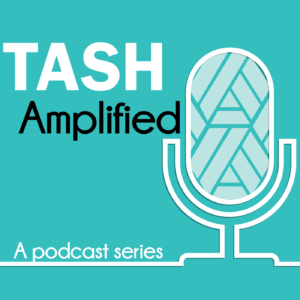Podcast: Play in new window | Download (Duration: 41:19 — 75.7MB)
Subscribe: RSS
Season 3, Episode 1 — 8 October 2018
About this episode
Carol Schall, Assistant Professor of Special Education and Disability Policy at Virginia Commonwealth University and the Director of Technical Assistance for the Virginia Commonwealth University Autism Center for Excellence, discusses her article, “Employees with Autism Spectrum Disorder Achieving Long-Term Employment Success: A Retrospective Review of Employment Retention and Intervention”. It is one of a collection of articles in the September 2018 special issue of Research and Practice for Persons with Severe Disabilities dedicated to “Critical Issues in the Employment of Persons with Severe Disabilities”.
About the presenters
 Carol Schall is the Co-Director of the Virginia Commonwealth University Autism Center for Excellence, the Director of the Virginia Autism Resource Center, and the Principal Investigator in the development of the Community Based Functional Skills Assessment for Transition Aged Youth with Autism Spectrum Disorders, a grant funded by Autism Speaks. She has over 30 years experience supporting adolescents and adults with ASD as a teacher, administrator, researcher, and consultant. Dr. Schall is also the co-developer and research coordinator for Project SEARCH Plus ASD Supports. Additionally, Dr. Schall has consulted nationally and internationally on issues related to adolescents and young adults with ASD.
Carol Schall is the Co-Director of the Virginia Commonwealth University Autism Center for Excellence, the Director of the Virginia Autism Resource Center, and the Principal Investigator in the development of the Community Based Functional Skills Assessment for Transition Aged Youth with Autism Spectrum Disorders, a grant funded by Autism Speaks. She has over 30 years experience supporting adolescents and adults with ASD as a teacher, administrator, researcher, and consultant. Dr. Schall is also the co-developer and research coordinator for Project SEARCH Plus ASD Supports. Additionally, Dr. Schall has consulted nationally and internationally on issues related to adolescents and young adults with ASD.
 Donald Taylor is responsible for membership and chapters at TASH and is the producer of Amplified.
Donald Taylor is responsible for membership and chapters at TASH and is the producer of Amplified.
Transcript
Announcer: You’re listening to TASH Amplified, a podcast that seeks to transform research and experience concerning inclusion and equity for people with disabilities into solutions people can use in their everyday lives.
Today we are talking with Carol Schall, an Assistant Professor of Special Education and Disability Policy at Virginia Commonwealth University and the Director of Technical Assistance for the Virginia Commonwealth University Autism Center for Excellence. We discuss her article, “Employees with Autism Spectrum Disorder Achieving Long-Term Employment Success: A Retrospective Review of Employment Retention and Intervention”. It is one of a collection of articles in the September 2018 special issue of Research and Practice for Persons with Severe Disabilities dedicated to “Critical Issues in the Employment of Persons with Severe Disabilities”. She is a co-author, along with Valerie Brooke, Alissa Molinelli Brooke, Paul Wehman, Jennifer McDonough, Katherine Thompson and Jan Smith.
Professor Schall talks about her study, but throughout, addresses the the best practices, challenges and future direction of the broad issue of employment for people with disabilities.
Musical introduction
Complete transcript forthcoming
Announcer: You’ve been listening to TASH Amplified. For more about the series, including show notes, links to articles discussed, a complete transcript and a schedule of episodes, visit tashorgstg.wpengine.com/amplified. You can subscribe through iTunes or your favorite Android podcast app to have the series delivered automatically to your device so you never miss an episode. If you enjoyed today’s episode, please share it with your friends and on your social networks.
Today we discussed research from the current special issue of Research and Practice for Persons with Severe Disabilities, a special issue dedicated to “Critical Issues in the Employment of Persons with Severe Disabilities”. The current issues, as well as the complete archive of 40 years of RPSD, is one of the benefits of TASH membership. You can learn more about RPSD at the publisher website, journals.sagepub.com/home/rps. For more on TASH’s employment-related work, visit our YES! Center website at www.yestoemployment.org. You can learn more about Carol Schall and the Virginia Commonwealth University, Autism Center for Excellence at vcuautismcenter.org.
TASH is a values and research-based advocacy association with an over 40-year record advocating for the rights of people with disabilities. TASH is a coalition that unites people with disabilities, researchers, educators, service providers, family members and others in the cause of guaranteeing that people with disabilities are able participate in all aspects of life. In addition to Research and Practice for Persons with Severe Disabilities, we offer a popular magazine, Connections, local chapters coving 18 states, a series of webinars and regional conferences, and our annual conference. The theme for our 2018 annual conference is “Be Creative – Innovative Solutions for an Inclusive Life”. The conference will be in Portland, Oregon, from November 28th through 30th, and will feature about a 1,000 attendees and 300 presentations by researchers, self-advocates, family members, educators, agency personnel and other experts and advocates. You can learn more and register for the conference at tashorgstg.wpengine.com/conference2018. You can receive updates from TASH on this podcast and our other activities by following us on Facebook or on twitter at @TASHtweet.
Music for TASH Amplified is an original composition and performance by Sunny Cefaratti, the Co-Director and Autistic Self Advocacy Mentor at the Musical Autist. You can learn more about the Musical Autist at www.themusicalautist.org.
This has been a sample of the colleagues and conversations available through TASH. It is only because of the excellent work that our members do that we can bring you this information. For more resources such as this and to become a member, visit tashorgstg.wpengine.com/join.
We’ll hear from another outstanding advocate again in two weeks.
Musical coda
This interview was originally recorded on 3 October 2018.
This transcript has been lightly edited for clarity.
Do you have an idea for an episode? We would like to hear from you! Fill out our suggestion form and let us know.

This work is licensed under a Creative Commons Attribution 4.0 International License. You are free to copy, redistribute or adapt it for any purpose, commercial or non-commercial, provided you adhere to the terms, including that you attribute the original source.

